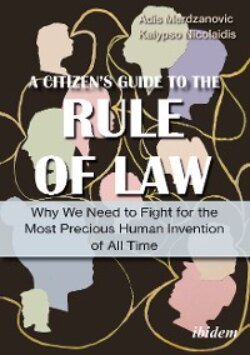Читать книгу A Citizen’s Guide to the Rule of Law - Kalypso Nicolaidis - Страница 6
What is the Rule of Law then?
ОглавлениеThe rule of law, the umbrella term which covers all these instances, deals with social relationships of power. It serves to mitigate unequal relations—between you and me, her and him, us and them. It does so by spelling out the way governments, the state machinery that they command, and any actor powerful enough to exercise power arbitrarily over citizens, ought to behave. And, crucially, it prescribes how conflicts between all of us, citizens, ought to be adjudicated fairly.
Its core aim is to limit as much as possible the arbitrary exercise of power, wherever and by whomever such power may be exercised. Of course, people in charge need to have some discretion to be able to act at all. But with the rule of law, we citizens are able to say when such discretion is legitimate and when it ceases to be.
Needless to say, if you open a legal textbook you will find a list of more formal criteria comprising a definition, most probably presenting the rule of law as the sum of a set of principles: equal treatment before the law, legal standards and certainty, accessible and effective justice, and judicial competence and independence. All true. But we will argue that the rule of law is deeper than this, and that together with its close siblings, democracy and human rights, it is the key to living a dignified life.
In short, the rule of law regulates how power is constrained, in all its forms, to ensure that citizens are truly free from its arbitrary use and abuse.
Isn’t this the most precious human invention of all time?
